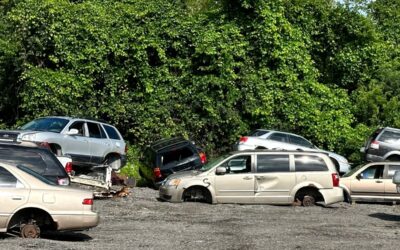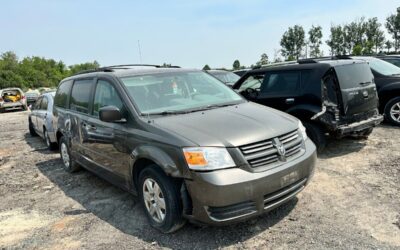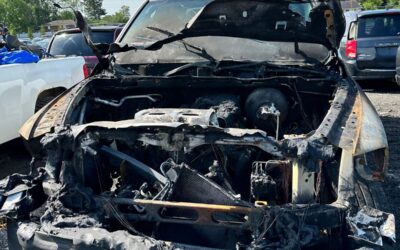Introduction
Every year, thousands of old vehicles stop running on the roads in Canada. Some break down beyond repair, others become too costly to maintain. Instead of letting these cars rust in your backyard or take up valuable garage space, many people now choose to scrap them. But car scrapping isn’t just about clearing space or getting cash for junk. It plays a big role in saving the Earth’s natural resources. When you scrap your old car correctly, you help reduce mining, energy consumption, and pollution. You give your old car parts a second life and prevent harmful fluids from contaminating soil and water.
In this blog, you will learn how car scrapping helps protect valuable resources like metal, oil, plastic, and energy. You will also see how proper recycling methods reduce waste, support local jobs, and make auto recycling a smarter choice for both you and the planet.
What Happens During Car Scrapping?
When you scrap your car, it goes through a series of steps. First, you contact your nearby car scrapyard. They usually tow the car away free of charge. Then, professional auto wreckers remove all reusable parts, such as tires, batteries, and electronics. Next, they safely drain all fluids like oil, transmission fluid, and coolant to prevent them from leaking into the ground.
After that, the metal frame is crushed and sent to a facility where it’s shredded. The shredded material is sorted using magnets and other tools to separate steel, aluminum, and other metals. Each type of metal then goes into the recycling stream to be melted down and reused.
This process ensures that every usable component is recovered. Nothing goes to waste unless it’s completely unusable.
Reducing the Need for Raw Material Mining
Your car contains valuable metals like steel, aluminum, copper, and even trace amounts of rare metals in electronic parts. When you scrap a car, recyclers remove these materials and send them to metal processors. The metals are cleaned, melted down, and reused in new vehicles or other products like construction beams, appliances, and tools.
This process cuts down the need to mine new raw materials. Mining takes up land, burns fuel, and leaves behind harmful waste. Producing steel from recycled scrap uses about 74% less energy than making it from iron ore. It also cuts water use and reduces greenhouse gas emissions.
So every ton of metal recycled from old cars saves a large amount of natural resources and energy. In Canada, the auto recycling industry handles over a million vehicles every year. That’s millions of tons of metal saved from landfills and unnecessary mining.
Also Read: Junk Car Removal for Cash: Win-Win for You & the Environment
Automotive Fluids Get Collected and Reused or Treated
Your old car holds several fluids that can harm the environment if left to leak. These include motor oil, transmission fluid, coolant, brake fluid, and gasoline. When you send your car to a licensed scrap yard, Trained staff safely remove these fluids before the vehicle is crushed or shredded.
Some of these fluids can be cleaned and reused, like motor oil and coolant. Others go through proper treatment before safe disposal. By handling fluids this way, recyclers stop harmful chemicals from entering the ground, nearby water systems, or city drains.
In Ontario, auto recyclers follow the rules set by the Canadian Auto Recyclers Environmental Code (CAREC). Greenway Auto Recycling follows this code to make sure all fluids are removed and managed properly. This helps protect local soil and water systems, including rivers and underground aquifers.
Tire and Battery Recycling Prevents Waste and Fire Hazards
Old tires and car batteries can become hazardous waste when dumped in landfills. Tires take hundreds of years to break down and release chemicals as they age. Piles of old tires can catch fire and burn for days, sending toxic smoke into the air. Batteries, on the other hand, hold lead and acid that can leak into the soil or water and harm plants and animals.
When you scrap a vehicle at a proper recycling facility, workers remove the tires and batteries first. Tires get sent to rubber recycling plants where they are turned into playground surfaces, road materials, or fuel for industrial use. Batteries go to licensed centers where the lead, plastic, and acid get separated and reused.
Canada enforces strict regulations on tire and battery recycling, and Greenway works with certified partners to make sure nothing harmful is left behind.
Recovering Valuable Auto Parts
Scrapped cars still have parts that can be used again. Instead of building new parts from scratch, auto recyclers recover working components like engines, transmissions, alternators, and doors. These parts are then sold at lower prices to car owners and repair shops.
This recovery process helps extend the life of other vehicles. It also supports the second-hand car parts industry, which helps reduce waste and keeps cars running longer. You benefit from affordable parts, while the environment benefits from reduced manufacturing and waste.
In the Greater Toronto Area, many people rely on used auto parts to save money on car repairs. Greenway Auto Recycling helps meet that demand by offering high-quality recycled parts that come from properly scrapped vehicles. So, when you scrap your car, you are also helping someone else keep their vehicle on the road.
Car Scrapping Helps Manage Plastic Waste in Vehicles
Cars today use a lot more plastic than in the past. You will find it in bumpers, dashboards, lights, trims, and seats. While metal parts are easy to recycle, plastic takes more work. But skilled auto recyclers are getting better at separating and processing plastic from scrap cars.
This plastic gets sorted and sometimes reused in making new car interiors or outdoor tools. While not all automotive plastic is recyclable, removing it prevents incineration or landfill buildup. That means less pollution in your area and fewer plastic particles ending up in water bodies or the air.
More car makers now work with recyclers to improve plastic recovery. Over time, this collaboration will improve recycling rates and reduce dependence on oil-based plastics.
Also Read: What to do with a car that is Not Worth Fixing?
Car Recycling Saves Energy Across the Whole Chain
Each step of a car’s life—from mining and building to driving and dumping—uses energy. Recycling a vehicle helps reduce energy consumption at nearly every stage of the vehicle’s lifecycle.
- No need to mine and process new metal
- No need to make parts that still work
- Less oil is used in making plastic
- Fewer shipments of new materials
- Lower energy use at factories
The energy savings from recycling a single vehicle can power a Canadian home for months. When thousands of cars get recycled every year, the saved energy adds up fast. Car scrapping is a smart move—not just for conserving resources but also for reducing the carbon footprint of manufacturing and transportation.
Conclusion
Car scrapping isn’t just a way to remove an old vehicle, it’s an important step in protecting the planet. You save energy, reduce pollution, lower landfill waste, and protect natural resources. In a country like Canada, where environmental awareness is growing, every scrapped car makes a difference.
Greenway Auto Recycling offers a trusted, eco-conscious solution for people living across the GTA. Whether your car is running or not, it still holds value—not just in dollars, but in its potential to be reused, recycled, and repurposed.
If you have an old vehicle sitting around, now is the time to act. You’re not just helping yourself—you’re contributing to a cleaner, greener Canada. Call (416) 783-9026 and turn your scrap car into something that benefits everyone.





